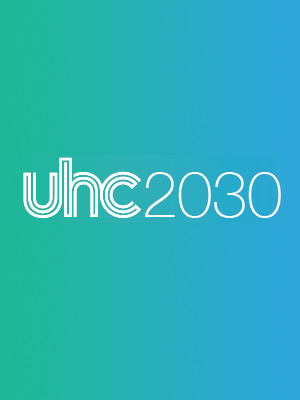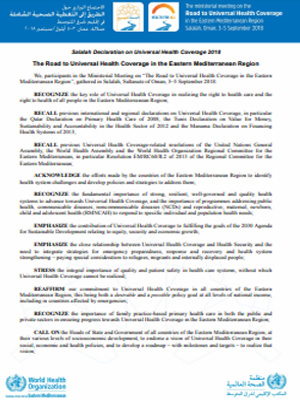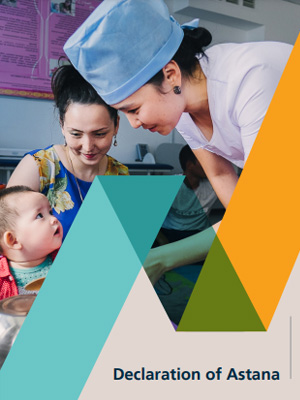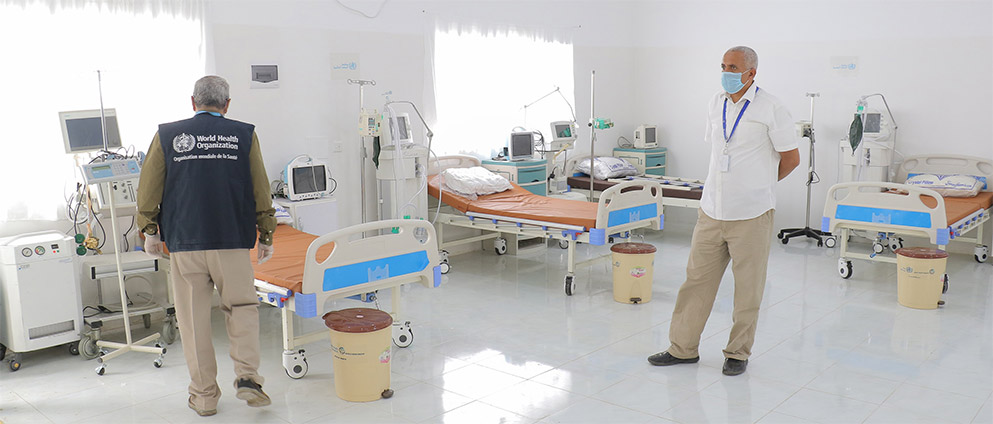
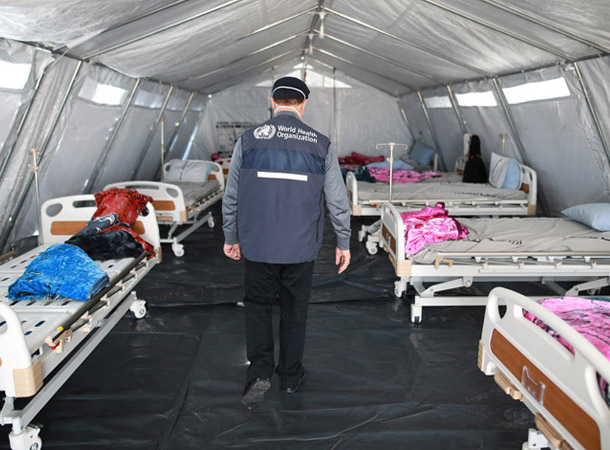
Access to health services
The ultimate goal of UHC is the provision of quality health services that are accessible, affordable and acceptable. Our work is guided by WHO Framework on integrated people-centred health services and the Operational framework for primary health care.The needs for health services can be met by the development of a package of essential health services and ensuring its implementation. Our main focus is on primary and community health care, hospital care and management, and quality and safety of services.
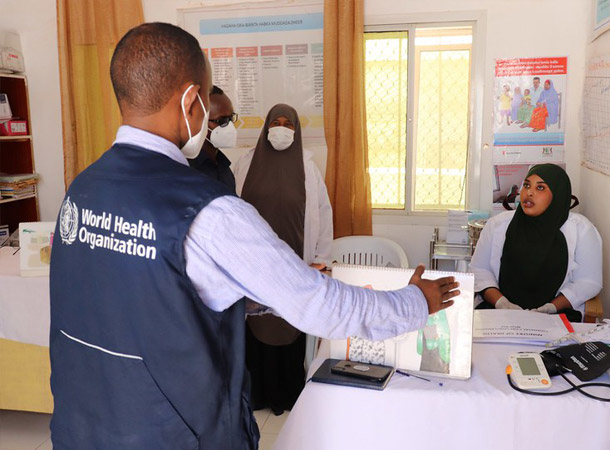
Health workforce
A well-trained health workforce is key for ensuring a resilient health system. It is projected that by 2030 there will be a shortfall of 18 million health workers, primarily in low- and lower-middle-income countries, with approximately 1.6 million in this Region. We work closely with countries to ensure that all people have access to a competent health workforce functioning within a robust health system.

Access to medicines and health technologies
Reliable and sustainable access to quality-assured, affordable essential medicines, vaccines, medical devices, diagnostics and other technologies, appropriately prescribed and used, is an integral component of the health system, without which UHC is not possible. We work with countries to develop appropriate medicine and technology policies and build national capacities in efficient and effective management of the supply chain. A major priority is promoting good governance in national regulation and management of medicines with a focus on accountability and transparency.
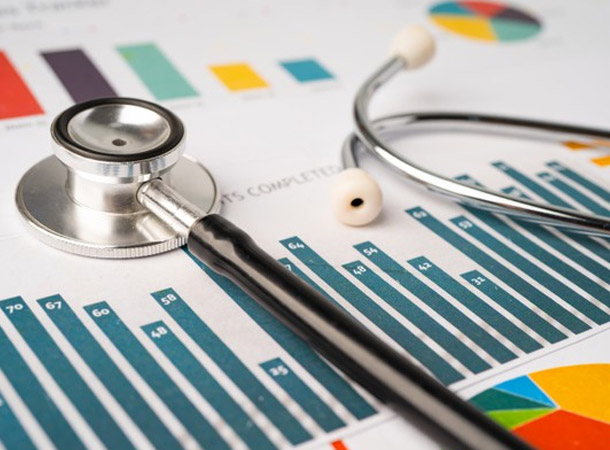
Governance and health financing
Health system strengthening for UHC requires political commitment, effective leadership, clear vision, strong institutions and dynamic health policies. Our work is inspired by the SDG call to “leave no one behind”. We work closely with countries to promote good governance for equitable, effective and efficient health systems and develop appropriate strategies for financial protection to avoid people facing financial hardship when they fall sick. We also work closely with development partners to mobilize and align resources towards shared national health goals and commitments.
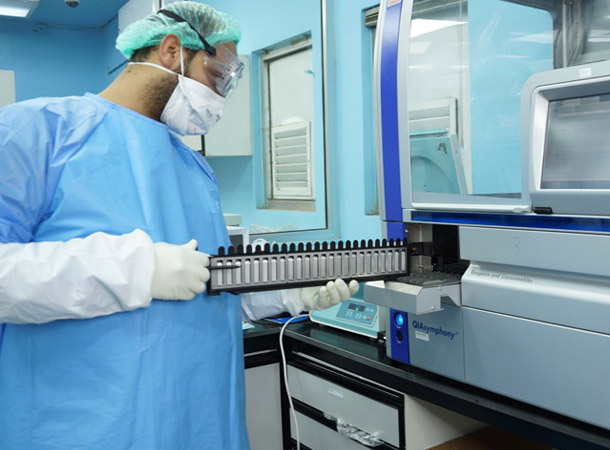
Health Systems in Emergencies Lab
The Region faces an unparalleled number of emergencies, including conflicts, natural disasters and disease outbreaks. Beyond their direct impact on health, emergencies increase the population’s susceptibility to disease and poor health through destroying or disrupting a health system and reducing its ability to respond appropriately and promote, restore or maintain health. The Health Systems in Emergencies Lab aims to support countries to build resilient health systems able to withstand and respond effectively to all emergencies.
Guide to implementing the Humanitarian-Development-Peace Nexus for Health
News
UN mission to Pakistan concludes in a statement on PHC for UHC
15 March 2021
Commitment to take action for universal health coverage
15 May 2017




